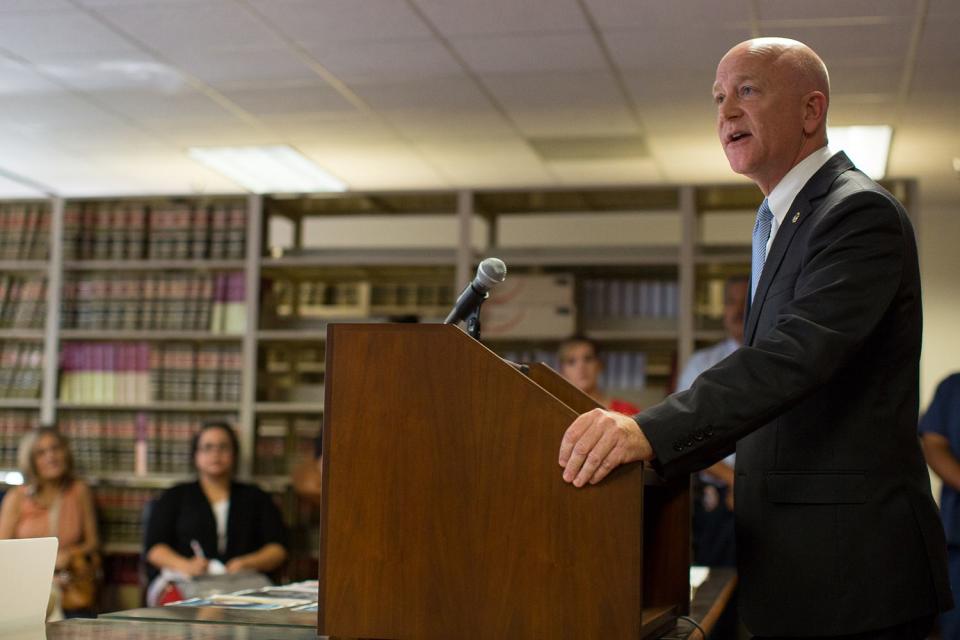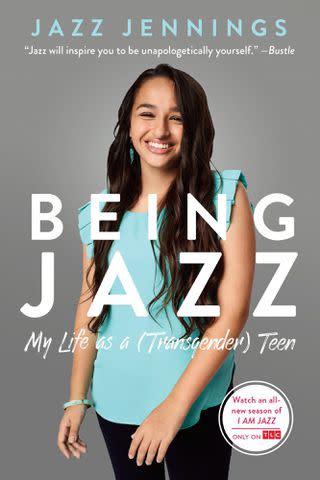Texas Judge Orders 12 Library Books Removed Over LGBTQ and Racial Content to Be Returned to Shelves
- Oops!Something went wrong.Please try again later.
- Oops!Something went wrong.Please try again later.
The books, including Caste: The Origins of Our Discontents by Isabel Wilkerson and Being Jazz: My Life as a (Transgender) Teen by Jazz Jennings, need to be back on shelves within 24 hours

A federal judge has ordered 12 library books that were removed from circulation due to LGBTQ and racial content be returned to shelves.
Judge Robert Pitman said in a ruling on Thursday that the removed books be back on shelves within 24 hours, according to CNN. Judge Pitman also required that all 12 books be marked as available in the library catalog and ordered that no books can be removed during the ongoing case.
Residents in Llano County filed a lawsuit last April claiming their 1st and 14th amendments were violated after the books were removed by lawmakers who deemed the content inappropriate.
Some of the books in question are Caste: The Origins of Our Discontents by Isabel Wilkerson, Being Jazz: My Life as a (Transgender) Teen by Jazz Jennings, and They Called Themselves the K.K.K.: The Birth of an American Terrorist Group by Susan Campbell Bartoletti.
"Although libraries are afforded great discretion for their selection and acquisition decisions, the First Amendment prohibits the removal of books from libraries based on either viewpoint or content discrimination," Pitman said, according to CNN.
The ruling comes in the midst of many ongoing book banning debates across Texas and the country.

Never miss a story — sign up for PEOPLE's free daily newsletter to stay up-to-date on the best of what PEOPLE has to offer, from celebrity news to compelling human interest stories.
In Texas, two longtime friends, alarmed at calls to ban books, decided it was time to speak out to help librarians—and readers.
After a Texas lawmaker, Rep. Matt Krause, targeted 850 books for removal from the state's libraries, Calzada and Foote, joined by other silent partners, started Freadom.us, which offers support for embattled librarian colleagues and guides for action campaigns.
Texas lawmakers threatened to ban titles that tackled issues of race, racism and LGBTQ themes—or that merely featured kids whose identities reflected them. Calzada, 57, and Foote, 63, formed FReadom Fighters in November 2021 to rally an army of book lovers on social media and in their communities. Using the hashtag #txlege to gain the attention of the Texas legislature, the group started sharing their counter-message. A tweetstorm of 13,000 tweets went out with this hashtag, including personal stories of books positively changing lives.
"Books shouldn't be contraband," says Foote, a retired librarian from Austin. "We've lost our way in this contentious environment. We forgot what's at the core of libraries: getting kids excited about reading and seeing stories that reflect their lives."
Related:Meet the FReadom Fighters Taking On Book Bans and Online Abuse: 'Books Are Not Contraband'
Calzada was in her late 20s before she first came across a children's book about a family that looked like hers. When she read Gary Soto's Too Many Tamales, the story of a Hispanic family coming together to make the traditional dish, "I remember thinking, 'Gosh, we do that,'" says Calzada, a library coordinator for an Austin-area school district. "Sometimes you need a book to bring reassurance and validate."
Most school libraries typically have 8,000 to 20,000 books. Foote says a librarian's job is to partner with the child and families to find the right book that works for them. Libraries, as she describes, are places of choice. "One of the powerful things about books is they are tools for understanding complex issues," says Foote. "If you look up the same issues on the internet, there isn't a container for it. You could end up reading anything anywhere, so books are safe places to understand complex issues."

Both women have faced online attacks ("We've been called everything under the sun," Foote says. "It's scary.") and they admit it can feel like a losing battle—last year, more than 1,600 titles were banned in schools across the country, with Texas leading the nation. Much of the harassment happens on social media or in private Facebook groups. Librarians are hesitant to speak up publicly and discuss the challenges of what's happening around them. Calzada recalls an incident when a parent, unsatisfied with how a librarian handled an issue, escalated with a threat to contact Texas Gov. Abbott.
"It's not just adults—kids are speaking up about how books [on the banned lists] helped them," says Calzada. The pair believe most people value libraries and disagree with book banning. "We're at an unprecedented moment. We had no idea censorship would get this bad—I hope we inspire others to get involved," says Foote.
For more People news, make sure to sign up for our newsletter!
Read the original article on People.

